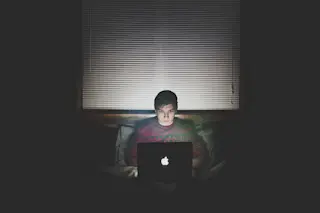Photo: flickr/Caden Crawford
Google Trends has become a productive source of data for social scientists, particularly those interested in when and where people search for the word "porn". First, they discovered that porn searches peaked in winter and early summer, a result that lead them to believe that there actually is a human mating season. Now, they've looked at the results by state, and found some more interesting patterns.
Perhaps not surprisingly, "higher percentages of Evangelical Protestants, theists, and biblical literalists in a state predict higher frequencies of searching for porn, as do higher church attendance rates." The state with the highest search rate? You guessed it: Mississippi, followed closely by Texas. The authors conclude that "more salient, traditional religious influences in a state may influence residents--whether religious or not--toward more covert sexual experiences."
Unbuckling the Bible Belt: A State-Level Analysis of Religious Factors and Google Searches for Porn.
"While the link between individual religious characteristics and pornography consumption is well established, relatively little research has considered how the wider religious context may influence pornography use. Exceptions in the literature to date have relied on relatively broad, subjective measures of religious commitment, largely ignoring issues of religious belonging, belief, or practice. This study moves the conversation forward by examining how a variety of state-level religious factors predict Google searches for the term porn, net of relevant sociodemographic and ideological controls. Our multivariate findings indicate that higher percentages of Evangelical Protestants, theists, and biblical literalists in a state predict higher frequencies of searching for porn, as do higher church attendance rates. Conversely, higher percentages of religiously unaffiliated persons in a state predict lower frequencies of searching for porn. Higher percentages of total religious adherents, Catholics, or mainline Protestants in a state are unrelated to searching for porn with controls in place. Contrary to recent research, our analyses also show that higher percentages of political conservatives in a state predicted lower frequencies of porn searches. Our findings support theories that more salient, traditional religious influences in a state may influence residents-whether religious or not-toward more covert sexual experiences." Related content: Does watching porn make people less religious?Do different kinds of porn portray women differently?Flashback Friday: Google search patterns reveal human mating season.














